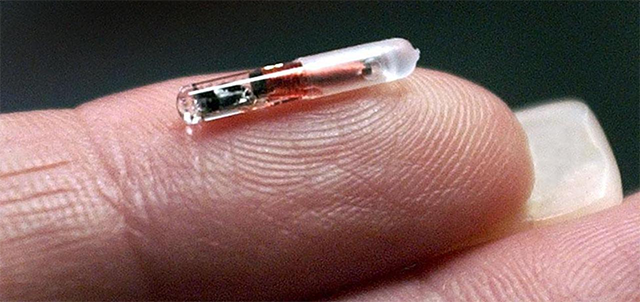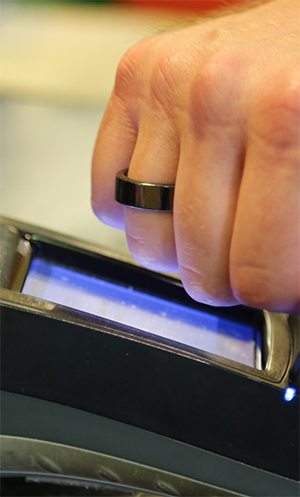The whole series of Deus Ex games, like all good science fiction, brings up a lot of thoughtful questions about the future and technology. However, more importantly, it brings up questions about humanity and how we as a species will deal with possible futures. I will let the story in Deus Ex: Mankind Divided answer the big questions: How will we deal with enhanced humans, will enhanced humans be a threat to those who aren’t enhanced, and is there really a divide or are we all still a part of the greater human race.
The question I’m going to answer today might be simpler in scope but is just as difficult to quantify. Unfortunately, I don’t have an hours-long video game to help me. Today, I want to know just how close we are to living in a world where augmented humans are the norm.

Cyborgs among us
We all know about prosthetics and other health-rated additions to the human body (like pace-makers). But many people would not consider those augmentations because most are needed to function or survive in our world. To consider them augmented humans or cyborgs is a bit unfair because these augments aren’t wants, but rather necessities.
But we know that some prosthetics can actually enhance the human body, even today. Although Oscar Pistorius is now mostly known as a convicted murderer, before, he was an Olympic athlete. At the time, many people were concerned that his prosthetic legs were giving him an advantage in his races. It’s distinctly possible that he could have run farther and faster than some of the “unaugmented” runners because Pistorius’ legs were thinner and springier than standard human legs. However, the world was assured that those specific legs that Pistorius ran in gave him no such advantage.
Pistorius isn’t the only person who could enhance his body to make himself better by external means. Let’s talk about someone a little closer to Deus Ex’s Adam Jensen. Let’s talk about Amal Graafstra. On his website called DangerousThings.com, Graafstra is called the pioneer of the DIY RFID implantation movement. Simply put, he likes to put microchips in his skin. However, just by looking at Graafstra, you wouldn’t think that he was enhanced in any way, unlike the Jensen, who clearly has cybernetic arms and thingers on his head.
Graafstra’s enhancement are two chips inside tiny capsules inserted under the skin between his thumb and forefinger. These chips have been known to store small bits of data, unlock doors, turn on lights, and many other mundane functions. It’s not remote hacking or long-range communication like Jensen, but perhaps someday it could be — probably sooner than you’d think.
 Everyday augments
Everyday augments
There are many people on earth who intentionally modify their body for personal improvement. Grinders (as some are called) and body hackers have their own yearly convention in Austin, TX, every year simply called Body Hacking Con. These DIY augmenters share knowledge ranging from yoga to magnets in your fingertips. However, some body hacks are so commonplace today, that we don’t even think about them being hacks at all.
I would like everyone to check their wrist right now. Many people, maybe even you, wear a pedometer and heart-rate monitor on your wrist, like a FitBit. These little devices are used to enhance our knowledge of our own body. They help us understand what are good and bad habits for us, and hopefully, we use these items to make us better humans.
These technological enhancements to our everyday wear can go far beyond the FitBit. The summer Olympics just introduced us to the NFC ring. This crazy device looks very much like a solid-color ring, and unless people were already familiar with the technology, they wouldn’t know that it was an electronic device. The NFC ring is still in early stages of development, but it functions very similarly to Graafstra’s RFID implant with one major addition. You can open electronic doors and maybe one day turn on lights with it, but right now, McLear Ltd. has a deal with Visa which will allow you to make purchases at local stores in similar ways to Apple Pay on your iPhone.

Will Deus Ex’s world be our world?
We are not far from that world being our own. Most of the enhancements, minus the sentient AI, that you see in the video games are already here, more or less. It’s just a matter of funding and willing victims supporters to step into the machine and have it done to them.
The term “cyborg” was first coined by Manfred Clynes and Nathan S. Kline as a way to describe the enhancements humans would need to survive the rigors of space. At the time, the term was very broad and could include something as simple as protective eyewear, but it’s come to be known as voluntary human enhancement with technology. And if that were as simple as the definition needed to be, then I would say that we are living in a world of cyborgs right now, but as with all things philosophical, it’s not that simple.
I think the key step in saying that we are there — saying we are living in the Deus Ex world — is being able to interface with technology directly with our thoughts. We are getting closer everyday, actually. DARPA has high-precision prosthetic arms that respond to pressure and brain activity. So give technology a decade or two, and we will be there. Tread lightly, everyone, deus ex machina is upon us.
That’s how I science the shit out of Deus Ex. Although there wasn’t a lot of hard science in this article, I would still like to know your thoughts. Are we close to having cyborgs among us? Are they already here? Let me know what you think in the comments below.







Published: Aug 25, 2016 09:06 am